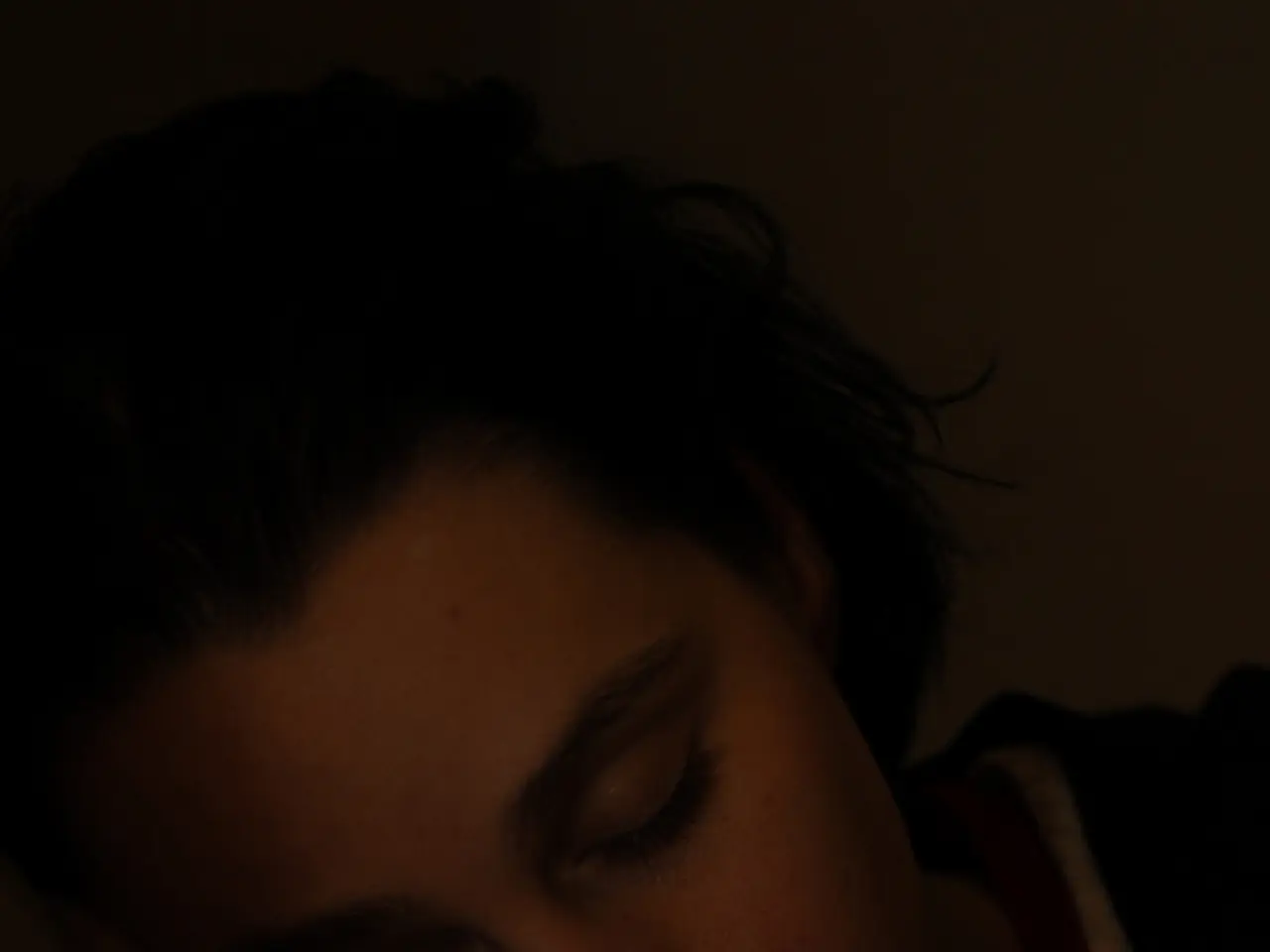Middle-of-the-night awakenings: Reasons and solutions
Frequent nighttime awakenings can disrupt the quality of sleep, leading to daytime fatigue and a host of other health problems. This article aims to shed light on the common causes and potential remedies for these disruptions.
### Common Causes
Sleep disorders, psychological factors, physiological needs and conditions, environmental factors, lifestyle factors, and dietary habits can all contribute to frequent nighttime awakenings.
**Sleep Disorders** such as insomnia, sleep apnea, restless legs syndrome (RLS), periodic limb movement disorder (PLMD), and circadian rhythm disorders can cause repeated awakenings.
**Psychological Factors** like stress, anxiety, and elevated cortisol levels can lead to middle-of-the-night awakenings and difficulty returning to sleep.
**Physiological Needs and Conditions** such as the need to urinate (nocturia), indigestion, or acid reflux can disrupt sleep. Night terrors, more common in children, can also cause sudden awakenings.
**Environmental Factors** such as bedroom temperature, light exposure, noise, and uncomfortable bedding can interfere with sleep. Using electronic devices before bed, an irregular sleep schedule, and exposure to blue light can delay sleep onset and cause waking.
**Lifestyle Factors** like screen use before bed, irregular sleep schedules, and consuming heavy or spicy meals close to bedtime can contribute to sleep disruptions.
### Potential Remedies
Identifying the specific cause or combination of causes in an individual's case allows for personalised interventions to reduce frequent nighttime awakenings and improve sleep quality.
**For Sleep Disorders:** Seek medical evaluation for suspected sleep apnea, RLS, or chronic insomnia. Treatment may include the use of CPAP devices for apnea, medications or behavioural therapy for insomnia.
**Improving Sleep Hygiene:** Maintain consistent sleep and wake times daily, avoid screen use 1-2 hours before bedtime to reduce blue light exposure, and create a calm bedtime routine to reduce anxiety.
**Environmental Adjustments:** Keep bedroom temperature comfortable within the ideal range (18-22°C or 65-72°F), use blackout curtains and minimize light exposure, reduce noise with earplugs or white noise machines, and ensure bedding is comfortable and supportive.
**Managing Physiological Causes:** Limit fluid intake before bed to reduce nocturia, address acid reflux with dietary changes and timing of meals, and practice relaxation techniques to reduce stress and anxiety.
Eating too much food or spicy food too close to bedtime can cause sleep issues due to indigestion. To prevent indigestion at night, a person should eat heavier meals earlier in the day and choose a light snack if hungry before bed.
By understanding the causes and implementing suitable remedies, individuals can improve their sleep quality and overall health.
[1] American Academy of Sleep Medicine. (2021). Insomnia. Retrieved from https://www.sleepeducation.org/sleep-disorders/insomnia
[2] Mayo Clinic. (2021). Sleep apnea. Retrieved from https://www.mayoclinic.org/diseases-conditions/sleep-apnea/symptoms-causes/syc-20377005
[3] National Sleep Foundation. (2021). Sleep hygiene. Retrieved from https://www.sleepfoundation.org/articles/what-is-sleep-hygiene
[4] National Sleep Foundation. (2021). Restless legs syndrome. Retrieved from https://www.sleepfoundation.org/articles/restless-legs-syndrome
Frequent nighttime awakenings can often be traced back to sleep disorders, psychological factors, physiological needs and conditions, environmental factors, lifestyle factors, and dietary habits. Sleep Disorders like insomnia, sleep apnea, restless legs syndrome (RLS), and circadian rhythm disorders can cause repeated awakenings. Psychological factors such as stress, anxiety, and elevated cortisol levels can lead to middle-of-the-night awakenings and difficulty returning to sleep. The need to urinate (nocturia), indigestion, or acid reflux can disrupt sleep, while night terrors, more common in children, can also cause sudden awakenings. Environmental factors like bedroom temperature, light exposure, noise, and uncomfortable bedding can interfere with sleep. Using electronic devices before bed, an irregular sleep schedule, and exposure to blue light can delay sleep onset and cause wakings. Lifestyle factors like screen use before bed, irregular sleep schedules, and consuming heavy or spicy meals close to bedtime can contribute to sleep disruptions.
To combat these issues, identifying the specific cause or combination of causes in an individual's case allows for personalised interventions. For Sleep Disorders, seek medical evaluation for suspected sleep apnea, RLS, or chronic insomnia. Treatment may include using CPAP devices for apnea, medications or behavioral therapy for insomnia. Improving Sleep Hygiene involves maintaining consistent sleep and wake times daily, avoiding screen use 1-2 hours before bedtime, and creating a calm bedtime routine to reduce anxiety. Environmental Adjustments like keeping bedroom temperature comfortable, using blackout curtains, minimizing light exposure, reducing noise, and ensuring comfortable bedding can also help. Managing Physiological Causes can involve limiting fluid intake before bed, addressing acid reflux with dietary changes, and practicing relaxation techniques to reduce stress and anxiety. Eating too much food or spicy food too close to bedtime can cause sleep issues due to indigestion. To prevent indigestion at night, a person should eat heavier meals earlier in the day and choose a light snack if hungry before bed.
By understanding these causes and implementing suitable remedies, individuals can improve their sleep quality and overall health. For more information on insomnia, sleep apnea, sleep hygiene, restless legs syndrome, and other sleep-related topics, refer to the resources provided by the American Academy of Sleep Medicine, Mayo Clinic, and National Sleep Foundation. The field of health and wellness encompasses fitness and exercise, mental health, skin care, nutrition, and workplace-wellness programs. Managing sleep disorders and improving sleep hygiene are integral parts of this multifaceted approach, as sleep plays a crucial role in child and adolescent mental health, HIV patients, arthritis sufferers, and those with psoriatic arthritis, among others. Finally, it's important to remember that science constantly evolves, and new predictive tools, therapies, and treatments in the field of sleep and mental health are continually being developed to help people improve their sleep quality and overall health.




